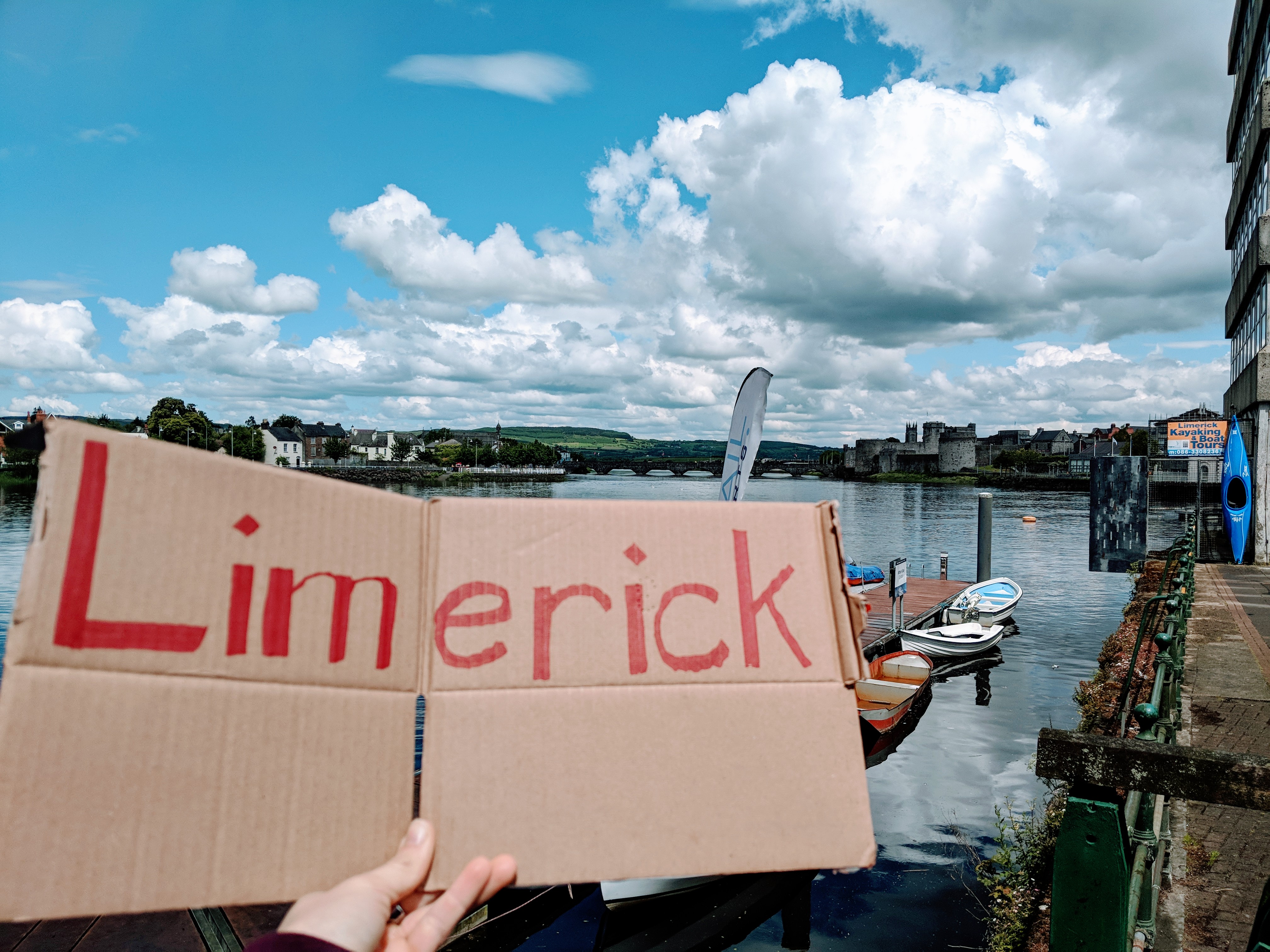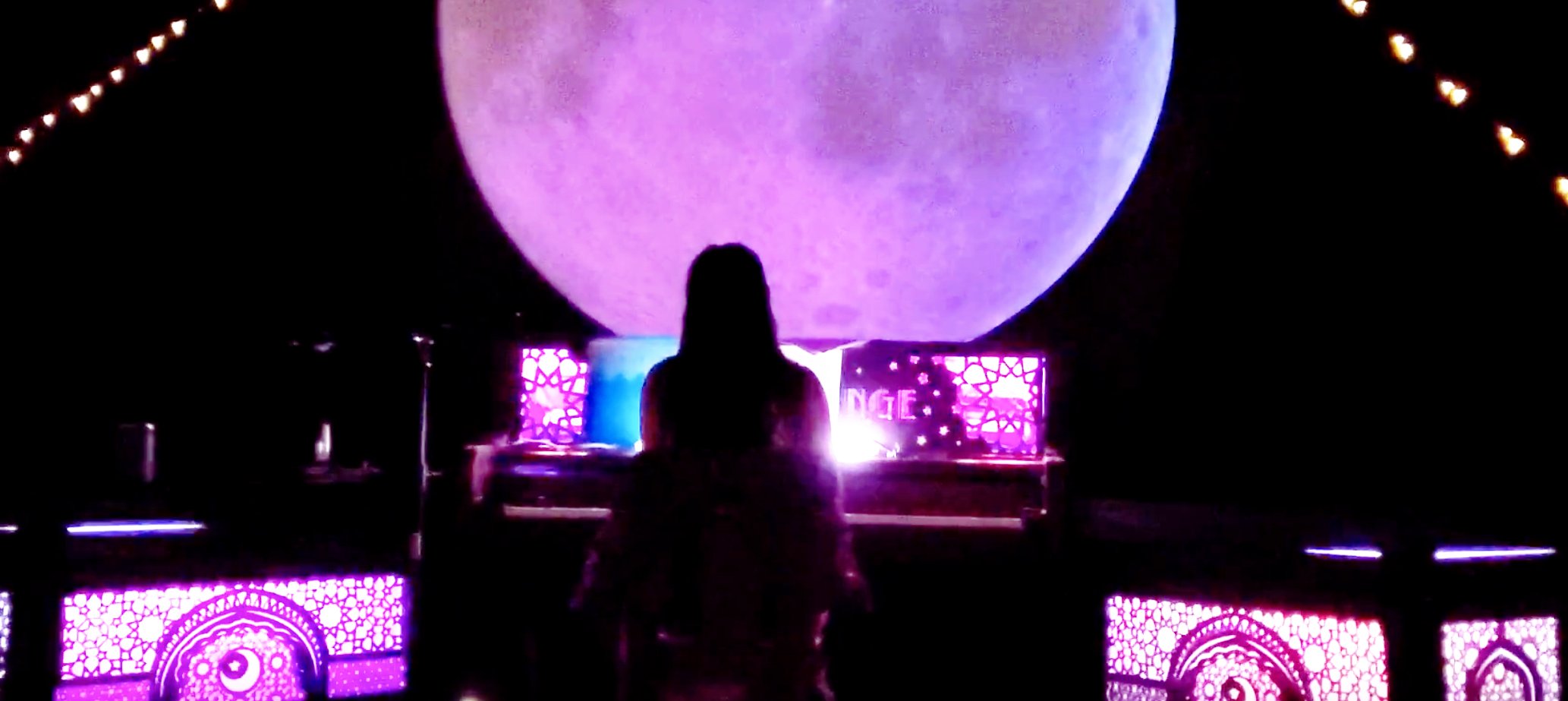There are a handful of unusual skills that to me are important in creating a sense of resilience and agency: dumpster diving, couchsurfing, and hitchhiking. These are all skills that one can learn to do safely and efficiently. With those skills, you’d always know that you have an extra barrier between things going sideways and a really bad situation.
It’s expensive to travel, and lots of things can go wrong. After a car accident, I was stranded in Barcelona with no phone, no passport, no credit cards or ID, a severely sprained ankle, and only a handful of Euro. At the time, I was desperate and ready to hitchhike. But I didn’t know how.
Now that I know how to hitchhike, I can see that it wouldn’t have helped me in that particular situation. I was in the middle of a city, and you can’t hitch out without being on a highway leading out of it already. But in general, building up diverse and unusual skills will open up options down the road.
A friend of mine, once terrified of water, confronted her fear so fully she became a scuba diver. We like to push ourselves in the directions that are least comfortable for us, so our areas of weakness turn into unique strength. Likewise, I used to have crippling social anxiety. I could barely stand up straight to order food for myself in restaurants. Fixing my social anxiety was an obsession for several years, and this felt like the next step.
One of the things that inspired me to make the leap was reading Escott Reid’s incredible documentation of his hitchhiking trip as he and Brian Raszap Skorbiansky travelled from Greece to China.
Even compared to East and Southeast Asia, I’ve never traveled anywhere where so little English is spoken. Of my last 50 rides, I would guess about three of the drivers spoke English. Whereas English became the language that ‘united’ most of the western world, here it was obviously Russian that was the common tongue of the Soviet Republics. Growing up in ‘The West’, I didn’t truly understand the vastness of the USSR. Only now am I beginning to wrap my head around how little I knew of this entire world that was built behind the iron curtain, where Russian was the language of the people and the future.
With my barren vocabulary of conversational Russian, I intuitively rely on maps to communicate where I’m going with drivers. Unfortunately, that’s also a language that many people don’t speak. This is similar to what I’ve experienced with taxi drivers in Seoul, who rely solely on landmarks and voice navigation. I consistently take the fact for granted that visual mapping, like any language, is something that is learned.
Escott in Kyrgyzstan
If looking at the world clearly and engaging with it builds agency, reduces anxiety, and leads to greater wisdom, he sure as hell is doing the right thing.
Preparing to Hitchhike
I asked friends who have hitchhiked for tips and consulted the Hitchhiker’s Guide To Hitchhiking. From that guide, I learned that gas stations and certain traffic lights were the best places to ask around. The guide even has details for how best to get from point A-B for many major cities.
I wanted to present in the maximally advantageous way. Being a woman helps, but is just the beginning.
- Sign? Brightly colored and neatly written with thick sharpies I brought with me. Red works best against cardboard.
- Rain? Rainbow-colored umbrella makes me look friendly and happy.
- Sun? Unfortunately for my eyes, no sunglasses or hats. Eye contact is very important.
- Clothes and appearance? Brightly colored, well-kept. I put my hair up to reveal my neck and put on pink blush to look more cheerful. I made sure that my sleeves were rolled up so that my hands were visible.
Many people I told my plan to expressed concern about my safety. But there are ways of making it safer, and many friends of mine are seasoned hitchhikers. I have constant GPS data direct to two of my good friends, which will work as long as my phone has power and some cell connectivity. So far, in of the places I was hitchhiking, there were other people around. I always did it in the afternoon.
In Ireland, guns and pepper spray are illegal to own. I could have capsaicin powder, but didn’t find the time to buy any. Personally, I feel less safe with pepperspray than with it. I become on-edge, with the body language of someone afraid. Presenting as afraid is far more dangerous than not having pepperspray. Most specific scenarios where I can imagine using pepper spray, I feel like that would escalate things, not be effective, and generally lead to me getting hurt more.
I notice that people are more concerned about hitchhiking than many other dangerous things. I can vet the driver when I see them in person and choose whether to approach them or not than with a random taxi driver, for instance.
So many people want to scare us into hiding with “what-if” scenarios, and I think it’s because they’re scared themselves. I know that bad things can happen. But it’s one thing to have the fear, and another to let it stop you from achieving your potential.
Really, the most likely situations are that I’m slow to get to my destination, tired, bored, and uncomfortable. Who wants to wait around in gas stations on their vacation?
The night before I first hitchhiked in Ireland, I felt a lot of fear and anxiety. Was I really going to do this? I didn’t push away that fear. I sat with it and let it sort itself out.
By the morning, the decision had been ironed out internally: it was worth it.

First 10 rides
Here are the first 10 times I hitchhiked.
- California, leaving a festival. “Am I really doing this? I don’t want to be doing this. … Oh, no. I signed up for a trip to Europe where this is what I do. Damn. Guess I’ll start now.” Making a cardboard sign reduced the emotional labor massively. 5 minutes of a sign succeeded when 20 minutes of going up to people did not. The ride was a man and women who had met at a sex party. We were all tired from the festival, fantasizing about showers and bed. The woman started talking astrology at some point, so I tuned out strategically.
- At a gas station an hour out of central Dublin, I waited for around 15 minutes with my sign for Cork. A car with a dad, daughter, and son must have felt bad for me, and offered me a ride 55 km in the right direction. It wasn’t ideal, but I took it. I talked with the 6 year old son, Dylan, as he excitedly talked about how he understood inflation and debt. It had to do with bank robberies, I think.
- I was dropped off at a gas station where within 1 minute (!) I got a golden ticket to Cork. However, I abandoned it halfway in order to see Cashel Rock. Artur was a business owner from Poland and has been in Cork for 15 years. He had a baby on the way in 2 months. Talking to him was comfortable and I asked him loads of questions about Ireland. He dropped me off right near the castle, saving me a 25-minute walk.
- After a frustrating and rainy 20 minutes at a smelly gas station, an older gentleman with a nice car offered a ride to Cork. He was visiting his wife and family just south of Cork, and was kind enough to drop me off in the city center. I was unfortunately too tired at this point to do more than make mediocre attempts at conversation. This conservative businessman was the only person I talked to that was pro-Trump.
- Going from Cork to Limerick, I met Stefan and his French father. I went into a fugue state of polite curiosity and pleasant conversation and emerged on the side of the road in a bad place for hitchhiking. They think they’re so helpful, non-hitchhikers do.
- I tried three spots in that town to find my ticket all the way into Limerick. My couchsurfing host was okay with this delay, but I was grouchy. After 30-some minutes a family that had moved to Ireland from Lithuania picked me up: Agata, Alex, Alex, and the baby Luna. I liked them a lot.
Hey, wait! That’s not 10. What happened?
Takeways
I stopped hitchhiking on this trip to focus on writing. Hitchhiking is emotionally and physically exhausting, and I have instead used the many hours of boring but predictable bus rides to write and nap. I’ve gone from every sentence in my journal starting with “I’m tired” to a more interesting internal landscape.
I learned a lot about how I would tackle this the next time. One large backpack would make this easier, versus my small backpack and small suitcase. Having basic camping equipment would massively reduce the fear of getting stranded on the side of the road. I would carry a lot more water.
Hitchhiking makes solo travel more engaging. In the relatively uncreative and conservative country of Ireland, I could really suck out its marrow by asking my passive audience all of the questions I was curious about. I’m glad I did it.

